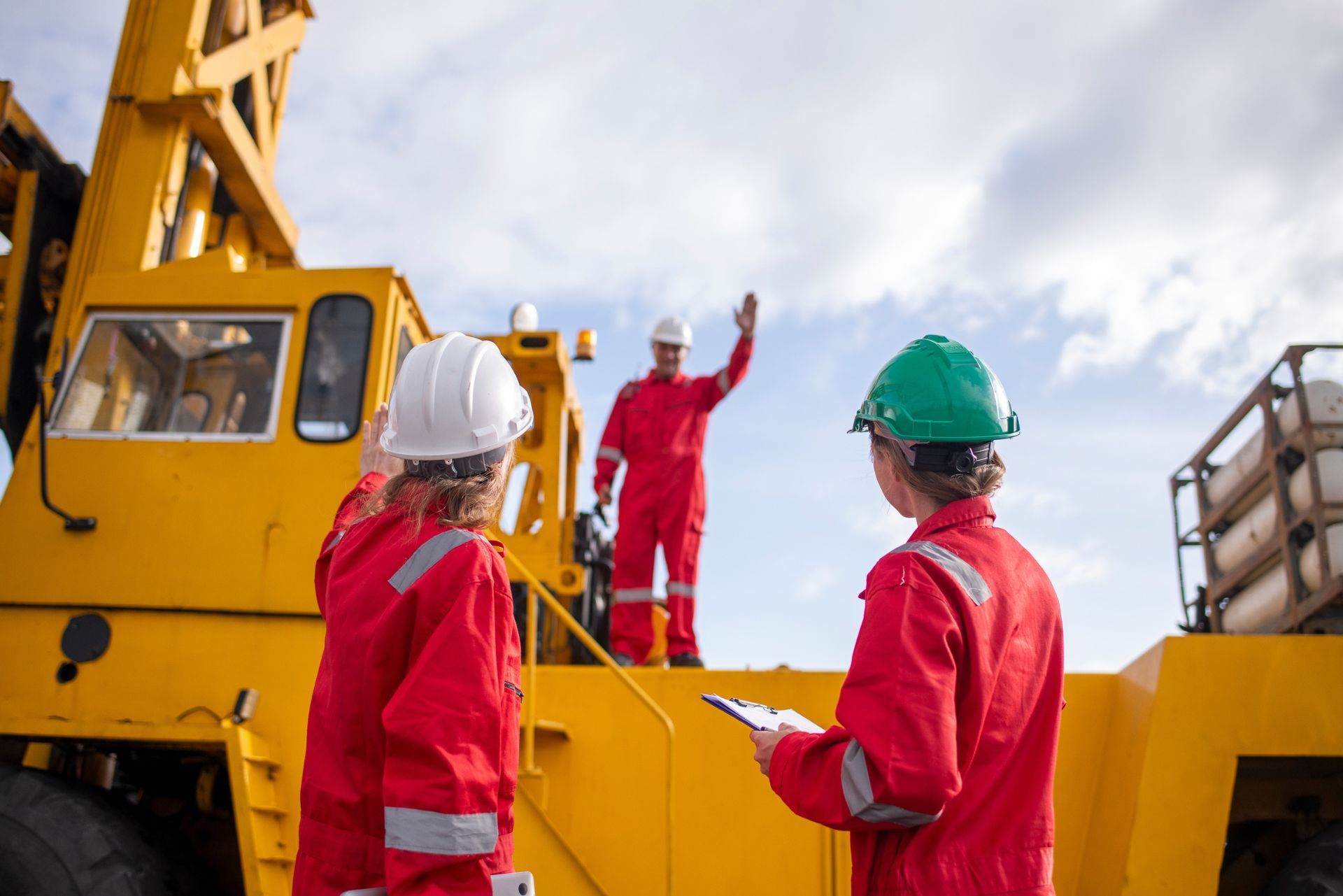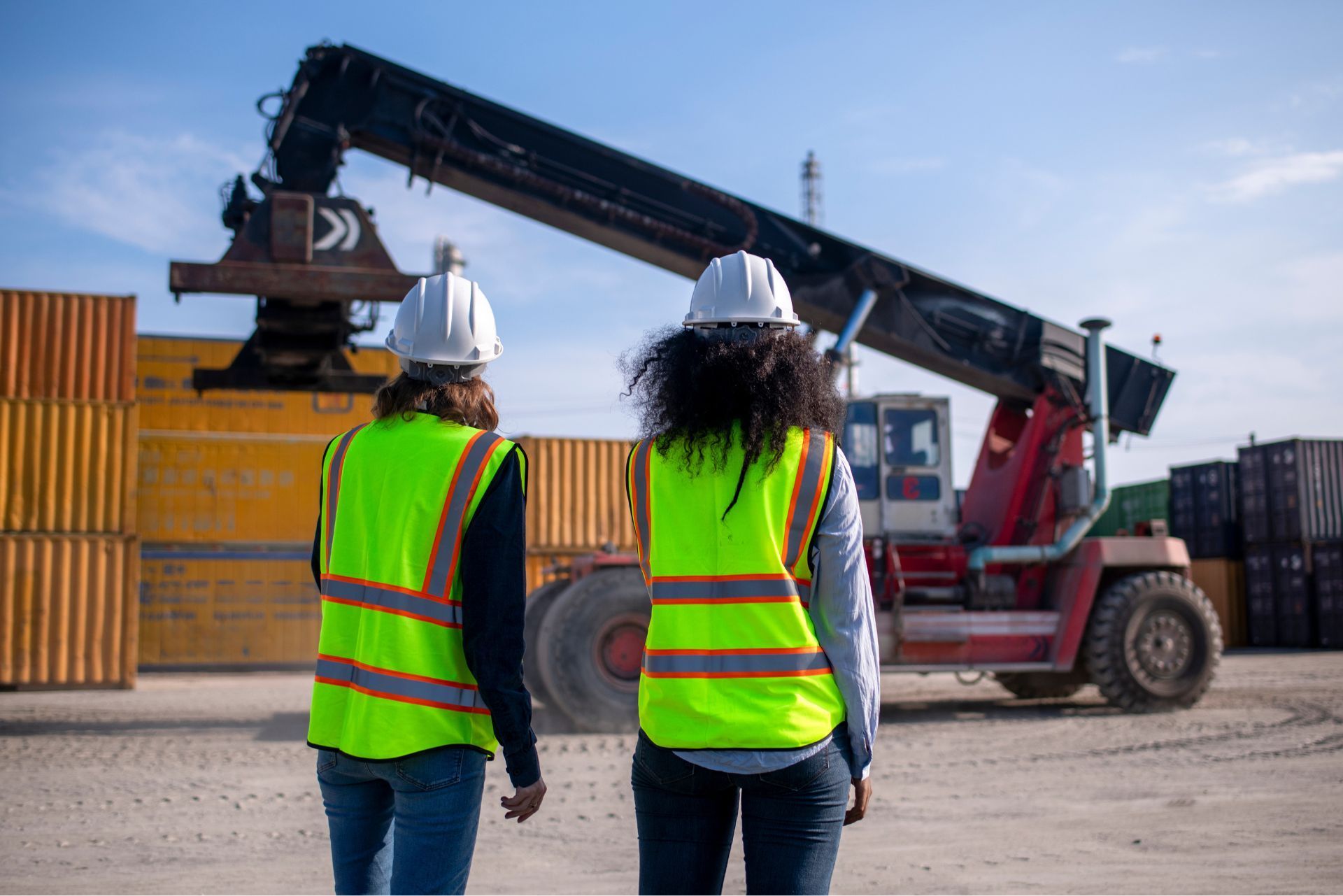
Top 3 Recommended Policies
Operating cranes is an essential part of many construction and industrial projects. However, with this responsibility comes the need for comprehensive insurance coverage. In Connecticut, crane operators face unique challenges and risks that necessitate specialized insurance solutions. This article provides an in-depth look at crane operators insurance in Connecticut, covering everything from the types of coverage available to the factors that influence insurance costs.
Understanding Crane Operators Insurance
Crane operators insurance is designed to protect both the operator and the business from potential liabilities associated with crane operations. This type of insurance can cover a variety of risks, including property damage, bodily injury, and equipment failure. Understanding the different components of crane operators insurance is crucial for ensuring adequate protection.
What Does Crane Operators Insurance Cover?
Crane operators insurance typically includes several key coverages:
- General Liability Insurance: This coverage protects against claims of bodily injury or property damage caused by the operator's actions while on the job.
- Workers' Compensation Insurance: Required by law in Connecticut, this insurance covers medical expenses and lost wages for employees injured on the job.
- Equipment Insurance: This protects the crane and other equipment from damage, theft, or loss, ensuring that operators can quickly resume work after an incident.
- Commercial Auto Insurance: If cranes are transported using vehicles, this insurance covers any accidents that may occur during transportation.
Why Is Insurance Important for Crane Operators?
The nature of crane operations inherently involves risks. Cranes are heavy machinery that can cause significant damage if not operated correctly. Insurance is not just a legal requirement; it provides peace of mind and financial protection against unforeseen circumstances. Without adequate coverage, crane operators could face devastating financial consequences from accidents or lawsuits.
Additionally, the construction industry is known for its fast-paced environment, where delays can be costly. Having comprehensive insurance can help mitigate these risks by ensuring that operators are not financially burdened by unexpected incidents. For example, if a crane were to malfunction and cause damage to a nearby structure, the financial implications could be extensive. Insurance can help cover repair costs and legal fees, allowing operators to focus on their work rather than worrying about potential liabilities.
Moreover, the reputation of a crane operator or company can hinge on their safety record. Clients are more likely to hire operators who demonstrate responsibility and have the appropriate insurance coverage. This not only enhances trust but can also lead to more business opportunities. In a competitive market, having robust insurance can be a distinguishing factor that sets an operator apart from others, showcasing their commitment to safety and professionalism.

Types of Insurance Policies for Crane Operators
In Connecticut, crane operators can choose from various insurance policies tailored to their specific needs. Understanding these options is essential for selecting the right coverage.
General Liability Insurance
General liability insurance is a fundamental component of any crane operator's insurance portfolio. This policy covers third-party claims for bodily injury or property damage that may occur during crane operations. For instance, if a crane accidentally damages a nearby building or injures a bystander, general liability insurance would cover the associated costs. Additionally, this insurance can also protect against claims of negligence, ensuring that crane operators are safeguarded against legal fees and settlements that could arise from such incidents. It is crucial for operators to regularly review their coverage limits to ensure they align with the scale and scope of their operations, especially as project sizes and complexities increase.
Workers' Compensation Insurance
In Connecticut, workers' compensation insurance is mandatory for most employers. This insurance provides benefits to employees who suffer work-related injuries or illnesses. For crane operators, this is particularly important due to the high-risk nature of their work. It covers medical expenses, rehabilitation costs, and lost wages, ensuring that injured workers receive the necessary support. Furthermore, workers' compensation insurance can also offer protection against potential lawsuits from employees who may seek damages beyond what the insurance provides. By maintaining this coverage, crane operators not only comply with legal requirements but also foster a safer work environment, which can enhance employee morale and retention.
Equipment Insurance
Equipment insurance is vital for crane operators who own or lease their machinery. This policy protects against financial losses due to equipment damage, theft, or malfunction. Given the high value of cranes, having this coverage can prevent significant financial setbacks that could arise from unexpected incidents. Moreover, equipment insurance often includes coverage for loss of income due to equipment downtime, which can be a critical factor for operators who rely on their cranes for ongoing projects. Operators should also consider additional endorsements that may cover specialized attachments or tools, ensuring comprehensive protection for all aspects of their operations. Regular maintenance and inspections can further mitigate risks, potentially lowering insurance premiums over time.
Factors Affecting Insurance Costs
The cost of crane operators insurance can vary widely based on several factors. Understanding these factors can help operators make informed decisions when selecting coverage.
Type of Crane and Equipment
The type of crane and equipment being used plays a significant role in determining insurance premiums. Larger, more complex cranes often come with higher insurance costs due to the increased risk they pose. Additionally, specialized equipment may require additional coverage, further impacting the overall cost. For instance, a tower crane used in high-rise construction projects may necessitate more comprehensive insurance than a smaller mobile crane used for light-duty tasks. The age and condition of the equipment can also be a factor; older cranes might be seen as more prone to mechanical failures, leading to higher premiums.
Experience and Training
The operator's experience and training also influence insurance rates. Operators with extensive experience and certifications are often viewed as lower risk, which can lead to reduced premiums. Insurance companies may require proof of training and certification to assess risk accurately. Moreover, ongoing education and training programs can further enhance an operator's profile, potentially leading to additional discounts on insurance. Operators who participate in safety programs or who have a proven track record of adhering to safety regulations may find themselves in a better position when negotiating their insurance rates.
Claims History
A crane operator's claims history is another critical factor. Operators with a history of frequent claims may face higher premiums, as insurers view them as higher risk. Conversely, a clean claims history can result in lower rates and potential discounts. It's important for operators to maintain detailed records of their operations and any incidents, as this information can be beneficial when applying for insurance. Additionally, some insurance providers may offer incentives for operators who implement proactive safety measures or risk management strategies, further influencing the overall cost of insurance.
Choosing the Right Insurance Provider
Selecting the right insurance provider is crucial for ensuring adequate coverage and support. Here are some tips for choosing a provider that meets the needs of crane operators in Connecticut.
Researching Insurance Companies
Start by researching insurance companies that specialize in coverage for crane operators. Look for providers with a strong reputation in the industry and positive reviews from clients. It’s essential to choose a company that understands the unique risks associated with crane operations. Additionally, consider seeking recommendations from fellow crane operators or industry associations, as firsthand experiences can provide valuable insights into the reliability and responsiveness of potential providers.
Comparing Quotes
Obtaining quotes from multiple insurance providers is a vital step in the decision-making process. Comparing quotes allows operators to evaluate coverage options and costs, ensuring they find the best deal. Be sure to consider not only the price but also the coverage limits and exclusions of each policy. Take note of any additional services offered, such as risk management resources or claims support, as these can significantly enhance the value of your insurance package.
Understanding Policy Terms
Before committing to an insurance policy, it’s important to thoroughly read and understand the terms and conditions. Pay close attention to coverage limits, exclusions, and any additional endorsements that may be necessary. If anything is unclear, don’t hesitate to ask the insurance agent for clarification. Furthermore, it may be beneficial to consult with a legal or insurance expert who can help interpret complex language and ensure that the policy aligns with your operational needs and risk exposure. Understanding these details can prevent costly surprises in the event of a claim.
Evaluating Customer Service
Customer service is another critical factor to consider when selecting an insurance provider. A company that prioritizes customer support can make a significant difference, especially during stressful situations such as filing a claim. Look for providers that offer 24/7 assistance and have a dedicated claims department. Reading reviews and testimonials can also shed light on the experiences of other clients regarding response times and the overall quality of service. A responsive and knowledgeable customer service team can provide peace of mind, knowing that help is readily available when needed.
Assessing Financial Stability
Lastly, evaluating the financial stability of an insurance provider is essential. Insurance companies are required to maintain certain reserves to ensure they can meet their obligations to policyholders. Researching ratings from independent agencies, such as A.M. Best or Standard & Poor's, can provide insights into a company's financial health. A financially stable provider is more likely to be able to pay claims promptly and maintain operations even during economic downturns, making this an important aspect of your decision-making process.

Common Exclusions in Crane Operators Insurance
While crane operators insurance provides essential coverage, it’s crucial to be aware of common exclusions that may apply. Understanding these exclusions can help operators avoid unexpected gaps in coverage.
Intentional Acts
Insurance policies typically do not cover damages resulting from intentional acts or gross negligence. If an operator deliberately disregards safety protocols, any resulting claims may be denied. It is vital for operators to adhere to all safety regulations to ensure coverage remains intact. Moreover, operators should engage in regular training sessions to reinforce the importance of safety measures and familiarize themselves with the latest industry standards. This proactive approach not only helps in maintaining insurance coverage but also significantly reduces the risk of accidents on site.
Wear and Tear
Normal wear and tear on equipment is generally not covered under equipment insurance. Operators should budget for routine maintenance and repairs to keep their machinery in good working condition. Regular inspections can help identify potential issues before they lead to costly repairs. Additionally, keeping detailed maintenance logs can serve as a valuable resource, providing evidence of proper care should any disputes arise regarding equipment conditions. Investing in preventative maintenance programs can extend the lifespan of cranes and enhance operational efficiency, ultimately saving money in the long run.
Contractual Liabilities
Some policies may exclude coverage for contractual liabilities, meaning that if an operator agrees to take on certain risks in a contract, the insurance may not cover those specific liabilities. Operators should carefully review contracts and consult with legal professionals to understand their obligations and potential risks. Furthermore, it’s advisable to negotiate terms that limit liability exposure, ensuring that the insurance policy aligns with the specific demands of each contract. By doing so, operators can better protect themselves from unforeseen financial burdens that may arise from contractual agreements.
Regulatory Requirements in Connecticut
In Connecticut, crane operators must adhere to specific regulatory requirements regarding insurance coverage. Understanding these regulations is essential for compliance and avoiding penalties.
State Regulations
Connecticut law requires that all employers carry workers' compensation insurance for their employees. This requirement extends to crane operators, ensuring that workers are protected in case of injury. Failure to comply with this regulation can result in significant fines and legal consequences. Moreover, the state has established guidelines that dictate the minimum coverage amounts necessary to adequately protect workers, which can vary depending on the size and scope of the operations involved. Employers must regularly review their policies to ensure they meet these evolving standards, as non-compliance can lead not only to financial penalties but also to increased scrutiny from regulatory bodies.
Licensing Requirements
In addition to insurance requirements, crane operators in Connecticut must also obtain the appropriate licenses. The state mandates that operators complete training and pass examinations to ensure they are qualified to operate cranes safely. Insurance providers may require proof of licensing and training as part of the underwriting process. The training programs often include both classroom instruction and hands-on experience, covering critical topics such as load dynamics, safety protocols, and emergency procedures. Furthermore, operators are encouraged to pursue ongoing education and recertification to stay updated with the latest industry practices and technological advancements, which not only enhances safety but also improves operational efficiency. As the construction industry evolves, staying compliant with these licensing requirements is crucial for maintaining a competitive edge and ensuring the safety of all personnel on site.
Best Practices for Crane Operators
To minimize risks and ensure a safe working environment, crane operators should follow best practices in their operations. Implementing these practices can also positively impact insurance premiums.
Regular Training and Certification
Continuous training and certification are essential for crane operators. Regularly updating skills and knowledge helps operators stay informed about the latest safety protocols and industry standards. Many insurance providers offer discounts for operators who participate in ongoing training programs.
Conducting Safety Inspections
Before each job, operators should conduct thorough safety inspections of their equipment. This includes checking for any signs of wear and tear, ensuring all safety features are functioning correctly, and verifying that the crane is suitable for the intended job. Documenting these inspections can also be beneficial for insurance purposes.
Developing a Safety Plan
Creating a comprehensive safety plan is crucial for minimizing risks on the job site. This plan should outline safety protocols, emergency procedures, and communication strategies. Involving all team members in the development and implementation of the safety plan fosters a culture of safety and accountability.
Conclusion
Crane operators in Connecticut face unique challenges that require specialized insurance coverage. Understanding the various types of insurance available, the factors influencing costs, and the regulatory requirements is essential for making informed decisions. By selecting the right insurance provider and implementing best practices, crane operators can protect themselves, their employees, and their businesses from potential risks.
In a field where safety and reliability are paramount, having the right insurance coverage is not just a legal obligation; it is a crucial investment in the future of crane operations. By staying informed and proactive, crane operators can navigate the complexities of insurance and focus on what they do best – safely operating cranes and contributing to successful construction projects.
Contact Us
Phone
Locations
Connecticut Location
703 Hebron Ave., 3rd Floor, Glastonbury, CT 06033
North Carolina Location
436 East 36th St., Charlotte, NC 28205


